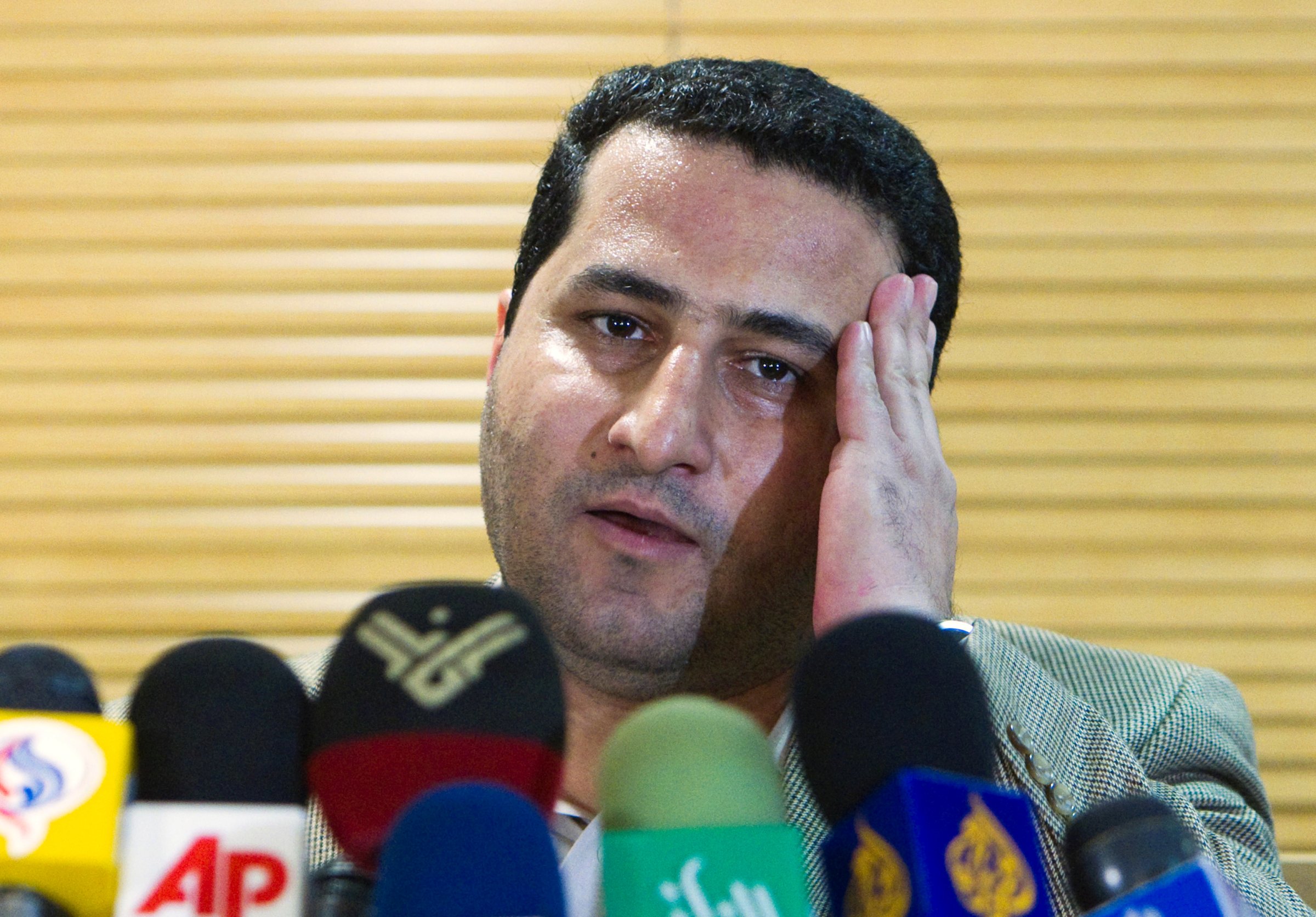
Speculation that hacked emails from Hillary Clinton’s sloppy server led to the execution of an Iranian nuclear scientist exploded after Donald Trump, her rival for the White House, relayed the hearsay to his nearly 11 million Twitter followers Monday night.
Like a vandal tossing a lit match into a pool of gasoline, it’s an act that can’t be undone. And it’s the latest in a series of foreign-policy political stunts that has the rest of the world wondering what kind of fever has struck the American presidential campaign. It’s the kind of fireworks Trump lit anew when he suggested Tuesday that Second Amendment boosters could thwart a President Clinton’s judicial nominees, which many took as a wink at gun violence against her (Trump says he was referring only to firearm backers’ political unity and resulting clout).
Trump’s call to arms may have been implicit, kind of, but his willingness to link Clinton to Tehran’s recent execution of Shahram Amiri was direct. Yet any evidence that Clinton’s private email server played a role in the scientist’s death is dubious, given that his 2009 arrival in the U.S. for 14 months was news in 2010, five years before the State Department released Clinton emails referencing Amiri’s case. After returning to Iran in 2010, Amiri claimed the U.S. government had abducted him; U.S. officials deny that, and say he returned to his homeland after voluntarily defecting to the U.S. The entire episode, befitting the fate of a potential nuclear turncoat, is murky and shrouded in mystery.
But linking Clinton to his death is more straightforward. Senator Tom Cotton, R-Ark., got the ball rolling during an appearance Sunday on CBS’s Face the Nation. “In the emails that were on Hillary Clinton’s private server, there were conversations among her senior advisers about this gentleman,” he said. “That goes to show just how reckless and careless her decision was to put that kind of highly classified information a private server.” The Drudge Report ran with a story from the Washington Examiner, a conservative website, on Cotton’s remarks, and Trump tweeted about it the next day.
While the Clinton emails didn’t mention Amiri by name—and were unclassified—their timing matches news stories about Amiri published contemporaneously. The FBI has said there is no evidence Clinton’s emails were hacked, but has also said finding evidence of such pilfering would be hard to find.
Given that it’s impossible to prove a negative, it’s an ideal case for political mischief. “Many people are saying that the Iranians killed the scientist who helped the U.S. because of Hillary Clinton’s hacked emails,” Trump’s Monday tweet said.
This is a new kind of “dirty trick.” In their original form, such political shenanigans, made infamous by Richard Nixon, attempted to fool innocents. But in their latest incarnation—Dirty Tricks 2.0—they serve only to make already-believing true believers more rabid. At the same time, such claims convince the other side of the rightness of their cause, while those in the middle simply tune out the mayhem.
With such a polarized electorate, each side is willing to surrender skepticism and believe the worst about its foes. (Democratic whispers that Trump campaign manager Paul Manafort is a stooge of Russian president Vladimir Putin, for example, traffics in the same muck, although not as deeply.)
Other Trump allies are engaging in such politically motivated claims. On Monday, the families of two of the four Americans killed by Islamic militants in Libya in 2012 sued Clinton, saying her “reckless” handling of classified information led to their deaths. They did so despite repeated probes that found Clinton not culpable, and a recent personal plea from the mother of Christopher Stevens, the U.S. ambassador to Libya who also perished in the attack, to stop using the deaths for partisan political purposes.
The peril posed by such loose truths is simple. It is a conflagration in the nation’s political discourse, fed by factions who believe only what they want to believe. It’s a blaze fueled by the cable TV networks they watch, the websites they visit, and their social-media haunts (Facebook is full of posters unfriending “friends” with different political outlooks).
Fewer friends on Facebook, of course, wouldn’t be a bad thing for many Americans. But the screeds highlight a shrinking body politic built around traditional American centrist attitudes. That works against the democratic tradition of honest debate and compromise.
The danger is that partisans may increasingly sacrifice once-shared versions of the truth in favor of those that mesh with their ideology. Trump, smelling defeat, already senses an opening. “I’m afraid the election is going to be rigged,” he told supporters last week in Ohio. “I have to be honest.”
More Must-Reads from TIME
- Why Trump’s Message Worked on Latino Men
- What Trump’s Win Could Mean for Housing
- The 100 Must-Read Books of 2024
- Sleep Doctors Share the 1 Tip That’s Changed Their Lives
- Column: Let’s Bring Back Romance
- What It’s Like to Have Long COVID As a Kid
- FX’s Say Nothing Is the Must-Watch Political Thriller of 2024
- Merle Bombardieri Is Helping People Make the Baby Decision
Contact us at letters@time.com